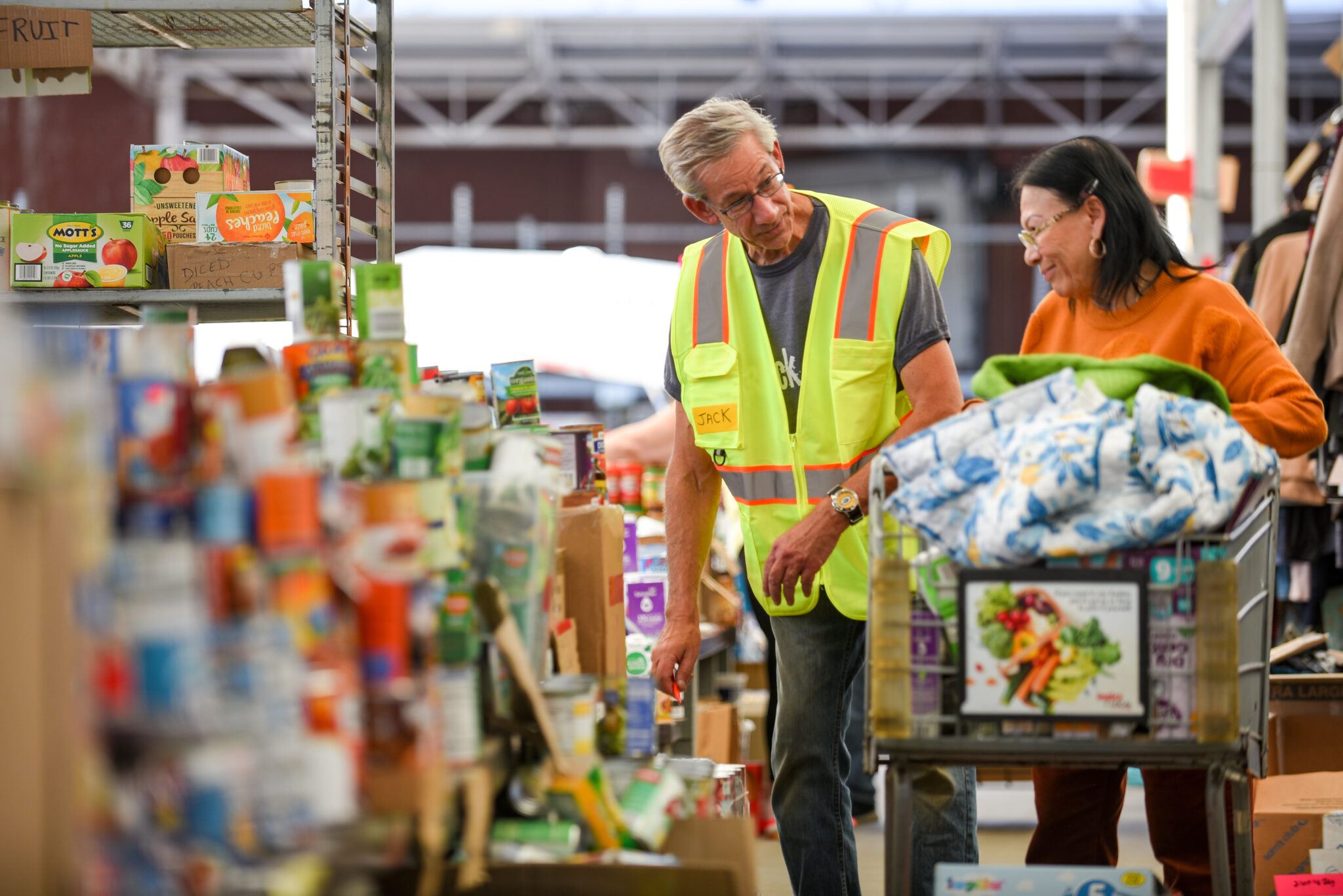Aaron Gilmour ’12 was at his home in western North Carolina when Hurricane Helene swept through and left heartache in its wake. He spent the night of September 28 bailing out his basement with a five-gallon bucket. Around him, trees crashed into homes, and small streams once inches deep turned into raging rivers feet high. In the aftermath, it was hard for Gilmour and other residents to grasp the extent of the devastation as they lacked cell service, internet, water and gas.

“When I went to check on my Berea College roommate and childhood friend in town, everything was caked in dry mud, there were upside-down vehicles and helicopters landing everywhere and huge sinkholes had opened up,” he said. “It was very visceral seeing those things in person versus on videos.”
After the first few chaotic days, Gilmour’s life took on a new rhythm. In the morning, he would ensure he had enough food for the day and collect water from the creek to flush his toilets. In the afternoons, he found purpose and community volunteering at a relief hub headquartered at Black Mountain’s Ingles grocery store.
“Serving is what we owe each other as human beings,” he said. “It felt really good to do something. Volunteering became almost addictive, the ability to process what was happening and channel it into direct action.”
Indeed, Gilmour’s life has been steeped in service. His parents met while doing aid work in Africa. His dad ran a social justice nonprofit out of the family basement in North Carolina, and Gilmour tagged along on protests and town council meetings. He experienced the philosophy of service as a Berea student, too. The school’s ethos of creating a level playing field for low-income students solidified his values around the importance of providing opportunity.
The relief hub began as a water truck delivery to the Ingles parking lot. Allison Hargus, another Swannanoa Valley resident, met it upon arrival to see how she could help. Gradually, people from near and far showed up with donations of supplies that were collected in the store’s garden center. Church groups and corporations came alongside them with donations and volunteers.
“The generosity from across the country was amazing,” Gilmour said. “Someone would call and say they had an RV to donate, or a semi would show up full of supplies to drop off. We have had dozens of amazing and committed volunteers, and we absolutely couldn’t have done it without all of those people.”
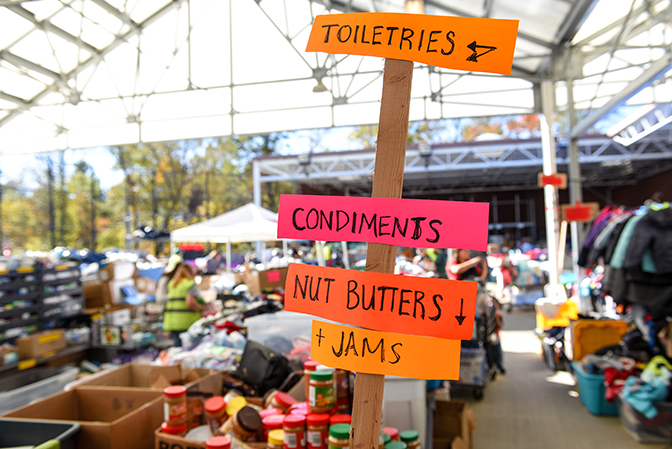
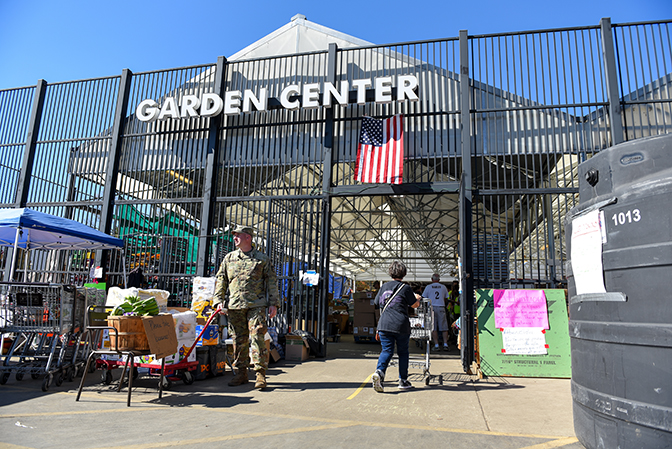
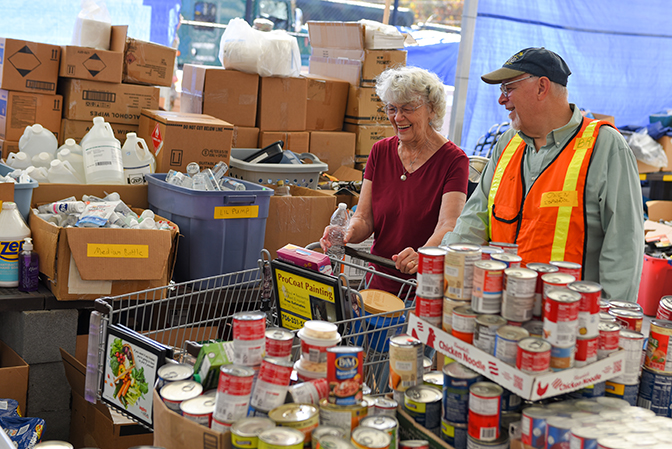
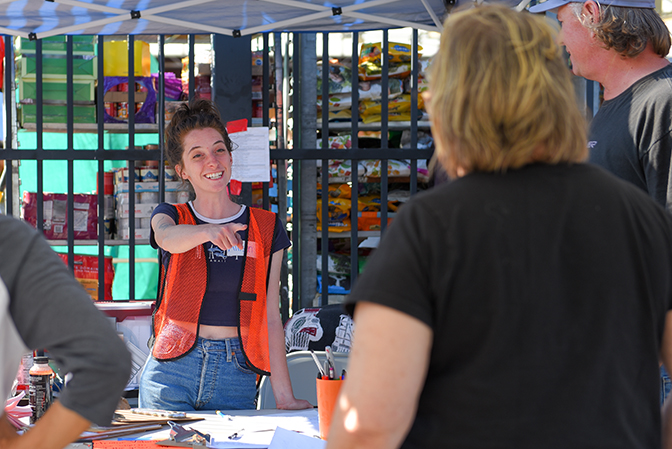
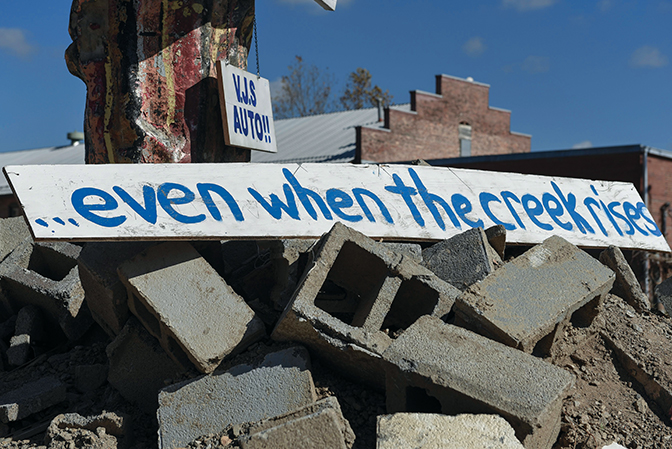
Photo submitted
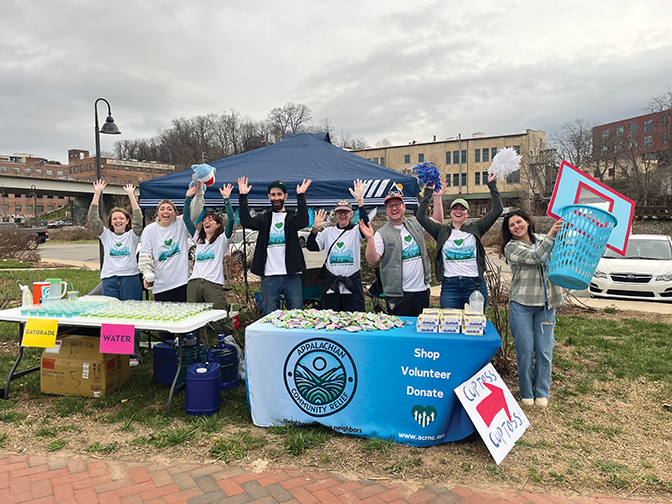
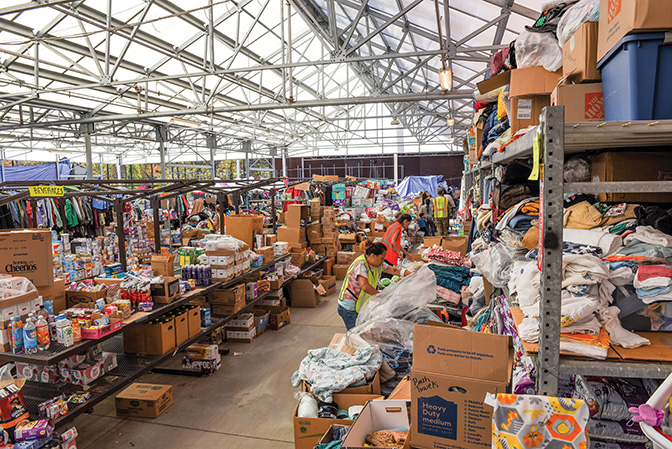
their grief.
Photos submitted
The Ingles hub grew into a center for search-and-rescue operations and debris removal. World Central Kitchen gave out meals. The Federal Emergency Management Agency (FEMA) and Emergency Medical Service (EMS) housed services there. The National Guard had a presence for two months. The 101st Airborne Division used the hub as a base of operations and assisted with warehouse management. Plus, they received support from state agencies and the Town of Black Mountain.
Gilmour credits Hargus’ organizational skills and Black Mountain’s central location near devastated communities with turning the relief hub into one of the largest in the area. Initially, the need was universal. Even folks without flood-damaged homes needed water and food; the local water supply was unpotable for 53 days.
Originally set up as a drive-thru service offering hot meals, water and other supplies, the group served 1,600 cars daily. As the acute needs waned, Gilmour’s group moved from a one-size-fits-all drive-thru to an individualized shopping model. More than 150 people visited their “store” each day, shopping for up to 3,500 people weekly.
While the material supplies were important, another aspect of the mission offered hope for upended lives. The shift to in-person shopping created community as people listened to each other’s stories and leaned on each other in their grief. The staff took time to get to know the specific needs of residents and connected them to resources. Volunteers and recipients would share hugs and long conversations.
“The feedback we got was that this is the first place people felt dignity again,” Gilmour said. “Seeing the community show up for each other, neighbors helping neighbors, was the most special part.”
As fall turned into winter, cold and rainy weather made the garden center a challenge. Though covered, it was open to the elements. Gilmour and other leaders recognized the region would have years of recovery due to historic damage across such a widespread area. They couldn’t solve every problem but could contribute their piece among all the relief organizations doing work.
“We understand the second crisis here is a financial one,” he said. “With work disruptions and the wait for home insurance payments, people are really struggling to put food on the table. If we can help alleviate part of their monthly budget, they can put that money towards something else.”
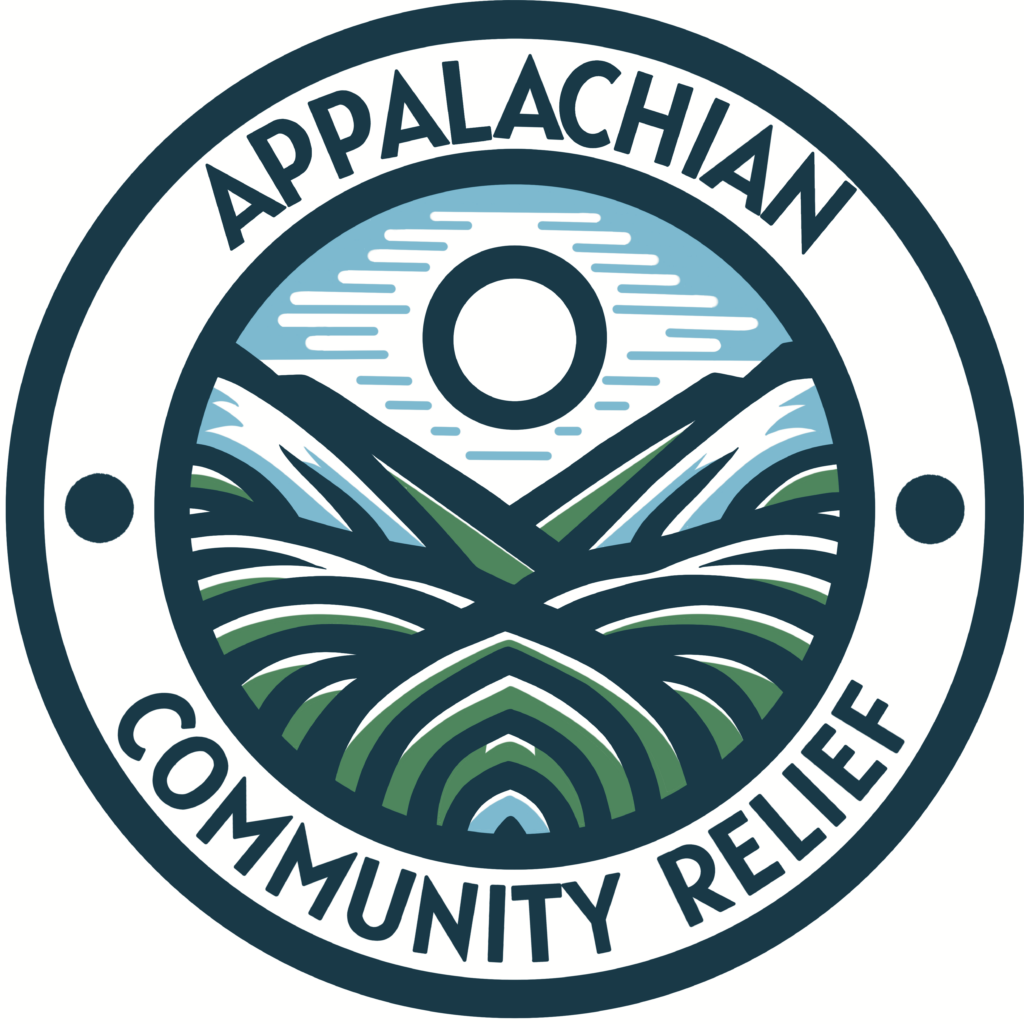
So Hargus, Gilmour and other leaders began forming a nonprofit called Appalachian Community Relief (ACR). They started a GoFundMe site to generate donations to lease an indoor location. ACR closed the garden center operation at the end of January after operating for nearly four months. They opened a storefront location in the middle of February where people shop for basic weekly groceries for free. They are also fundraising for mobile outreach to satellite towns needing supplies.
In the transition to a different model, Gilmour and other leaders are seeking a more sustainable path for themselves. He dedicated much of his non-working time as the director of operations. Now, with reduced hours and a focus on developing more volunteer leaders, they are laying the groundwork to be there for their community as long as it needs.
“Berea College encouraged me to explore my Appalachian identity, which was really helpful in seeing its complicated history and the rich traditions I am proud of,” Gilmour said. “Appalachian Community Relief really resonates with my values of building up the mountain communities where I grew up. I have a sense of this work being a calling.”


